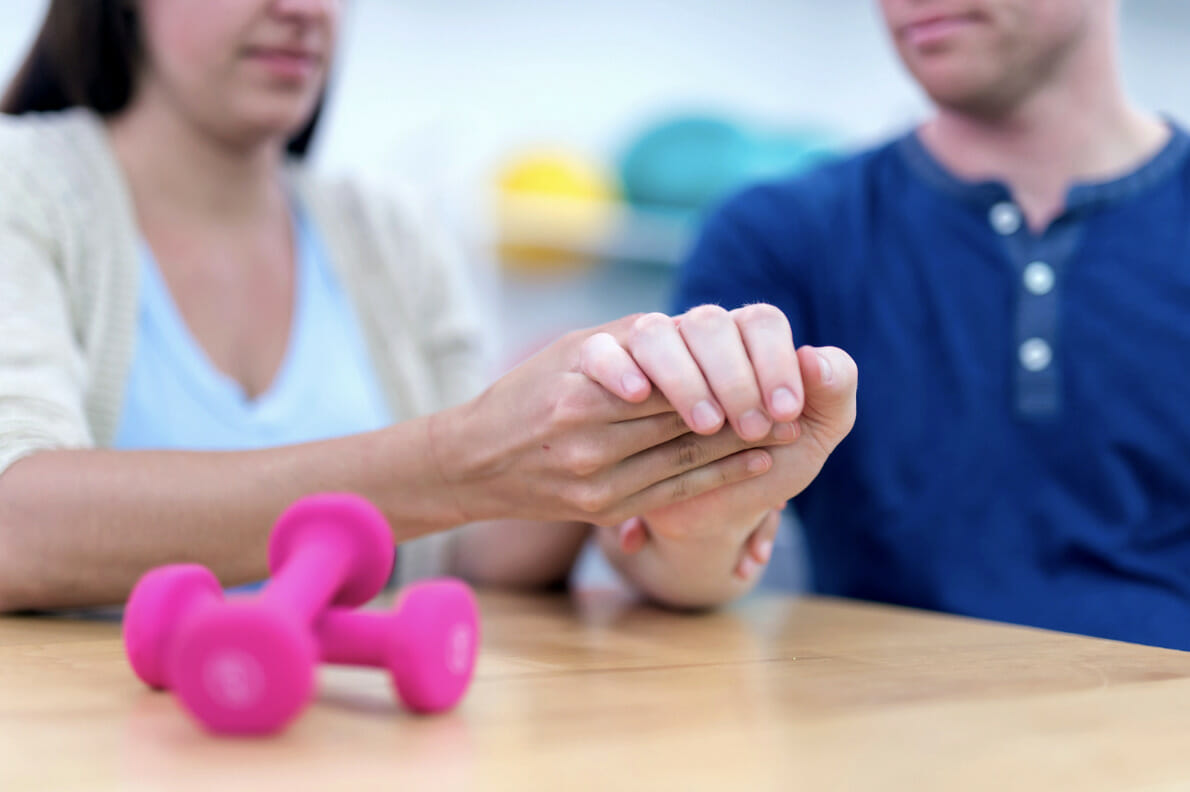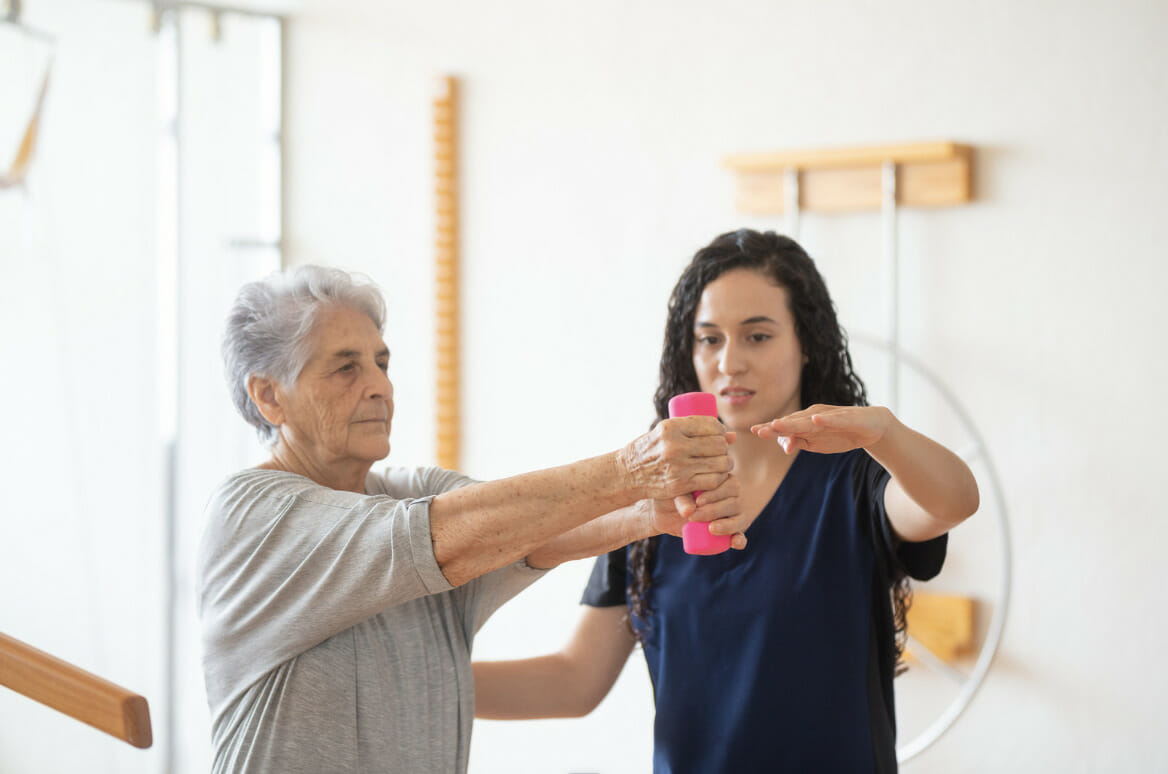Occupational Therapy
Occupational therapy is an essential treatment for improving everyday function and physical activity. Occupational therapy can help people with a wide range of movement and coordination problems, from fine motor skills like writing to gross motor skills like getting dressed.
In addition to working on specific motor skills, our therapists also focus on feeding skills, attention, and self-regulation. Occupational therapy may be the key to enhancing childhood skills, regaining independence, and enjoying everyday activities.
It can also help to prevent further injuries by teaching patients how to perform daily tasks safely. In addition, occupational therapy can provide much-needed social interaction for patients who may be isolated due to their condition.
For patients recovering from an injury, occupational therapy can help them regain the skills they need to return to their previous level of function. Occupational therapy can also guide how to adapt to any new limitations by providing basic tips on how to move your body.
When Should You Receive Occupational Therapy
Occupational therapy can benefit people of all ages who have difficulty performing everyday tasks due to physical, mental, or developmental disabilities.
Adults who have suffered a stroke or other injury may need occupational therapy to relearn how to perform basic activities such as dressing, cooking, and brushing their teeth.
Children with developmental delays may benefit from occupational therapy to improve their motor skills and learn how to interact with their environment.
Occupational therapy can be helpful for seniors who are struggling to maintain their independence. If you or someone you know is having difficulty performing everyday tasks, occupational therapy may be able to help.
OT can also help you manage the symptoms of chronic conditions such as arthritis, Alzheimer’s disease, and diabetes. Occupational therapy is a safe and effective treatment with few side effects.
If you are experiencing any difficulty in performing activities of daily living, occupational therapy can help you regain your independence.
Who Will You Be Working With
Eastern Therapy's occupational therapists are health care professionals who help people across the lifespan participate in the things they want and need to do through the therapeutic use of everyday activities (occupations).
We work with individuals who have conditions that are mentally, physically, developmentally, or emotionally disabling. Our therapists also work with older adults experiencing physical and cognitive changes.
Our work services the physical, mental, and developmental needs of infants, children, and youth.
Our services promote health and well-being by improving cognitive, physical, and motor abilities and reducing or eliminating barriers to independent living and productive activities.
What to Expect from an OT Session
Occupational therapy is a type of therapeutic treatment that seeks to improve a person's ability for meaningful activities, through a range of restorative exercises that are typically laid out in a treatment plan.
Occupational therapists use a variety of techniques to achieve these goals, including exercises, machines, and specializing in Activities of Daily Living (ADLs).
We also work with patients to design custom rehabilitation programs that are specific to each individual's needs.
In addition to helping patients recover from injuries, occupational therapists also play an important role in preventative care.
By teaching patients how to properly perform tasks and avoid injuries, occupational therapists can help people stay healthy and independent for longer.
Some of the Different Treatments that Occupational Therapists Use
Adult Occupational Therapy:
- Therapeutic Ultrasound
- Neuromuscular Electric Stimulation
- Paraffin
- Iontophoresis
- Hot/Cold Modalities
- Kinesio Taping®
- Shoulder, Elbow, Hand and Digits Rehabilitation
- Splinting and Edema Control
- Management of Generalized Pain and Weakness
- Hands on Manual Therapy
- Cognitive Rehabilitation
- Home/Environment Modification Training
- Activities of Daily Living Training
- Adaptive Equipment and Assistive Technology Training
- Executive Functioning Training
Pediatric Occupational Therapy:
- Sensory Integration
- Handwriting Without Tears®
- School-Related Skills
- Handwriting Skills
- Oral-Motor and Feeding Skill Development
- Gross and Fine Motor Development
- Early Intervention Services
- Coordination Skill Development
- Age-Appropriate Self-Help Skills
- Education and Modification of Daily Living Skills
- Adaptive Equipment Purchasing, Education and Modification
- Development of Home Programs and Sensory Diets
- Social Skills Training
- Visual-motor/Visual perceptual skill development
Benefits:
- Improved independence - implementing an occupational therapy program can help people of all ages become more independent. For example, older adults who are struggling to maintain their independence can benefit from occupational therapy to improve their cognitive and physical abilities.
- Improved safety - impaired motor skills can lead to accidents and injuries. Occupational therapy can help improve motor skills and coordination, which can, in turn, reduce the risk of accidents
- Improved school skills - impaired motor skills can make it difficult for children to perform well in school. Occupational therapy can help improve a child’s fine motor skills, and impaired social skills
- Improved work-related ergonomics and skills specific to job duties
- Improved function of joints and body mechanics for functional tasks
- Adaptive equipment and positional supports recommendations
- Home modifications/safety
If you or someone you know is struggling to perform everyday tasks, occupational therapy may be able to help. Our experienced therapists can work with you to develop a treatment plan that is specific to your needs. Contact us today to learn more about how we can help you regain your independence.



